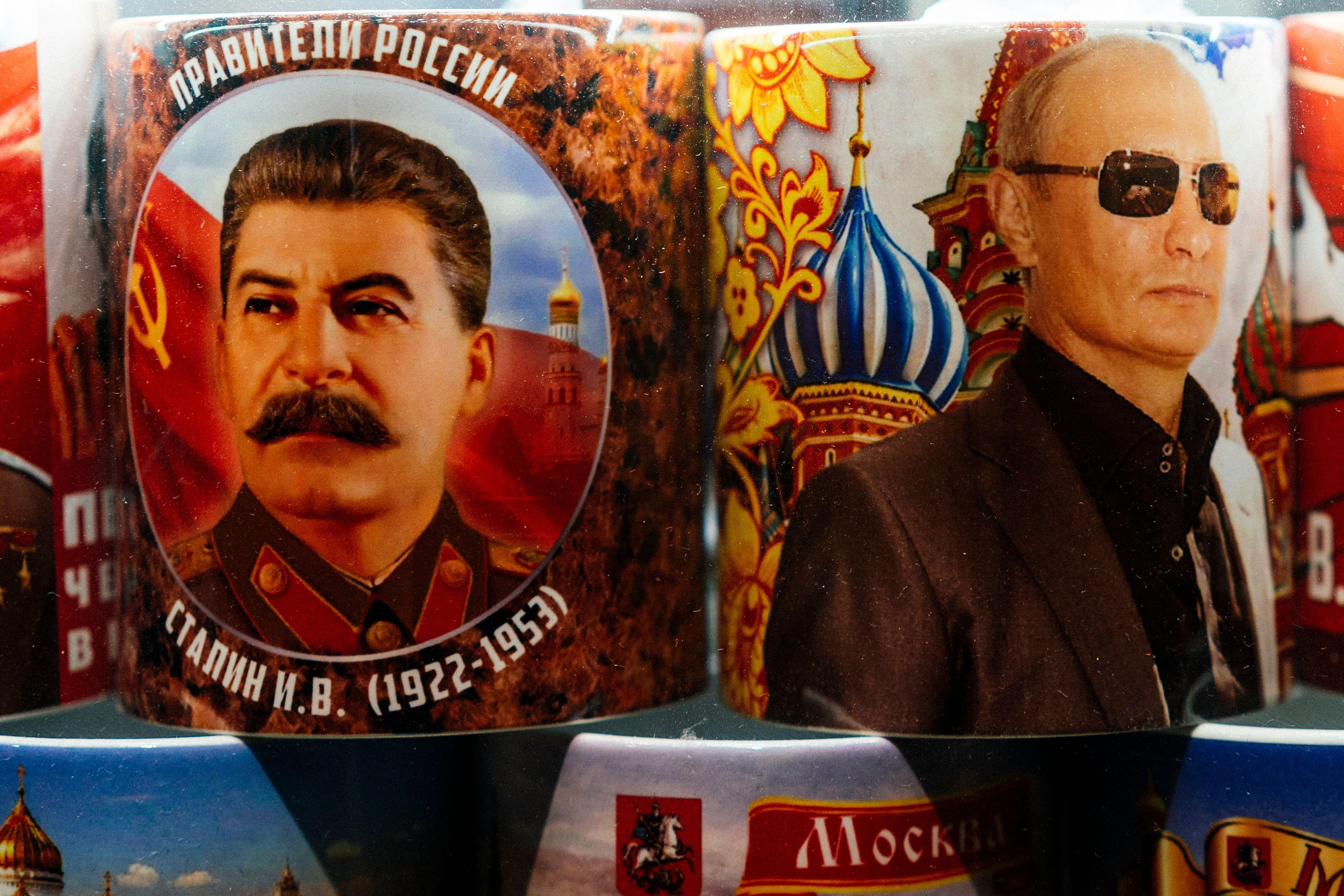On Wednesday, as Russian Foreign Minister Sergey Lavrov expressed “a certain hope that a compromise can be reached” in the peace talks with Ukraine, his boss, President Vladimir Putin, appeared to dash those chances during a chilling speech in which he warned Russians to prepare for a long confrontation with the West and seemed to embrace his inner Josef Stalin.
Speaking at the start of a televised videoconference with senior Kremlin officials, Putin let loose a string of invectives not just against “the pro-Nazi regime in Kyiv” (which he’s denounced in those terms before) but also against anyone in Russia who supports Western views or Western lifestyles. He lambasted such people as “fifth columnists,” imbued with a “slavelike consciousness,” whose real goal is to “destroy Russia.”
He then railed on in a spirit of venomous xenophobia—and foreshadowed an impending crackdown on domestic political critics—not heard from any Russian leader since the days of the Soviet Union’s most brutal dictator:
The Russian people will be able to distinguish true patriots from scum and traitors and simply spit them out like a midge that accidentally flew into their mouths—spit them on the pavement. I am convinced that such a natural and necessary self-purification of society will only strengthen our country and our solidarity, cohesion, and readiness to respond to any challenges.
This passage is in some ways reminiscent of Stalin’s diatribe, in his final years, against “rootless cosmopolitanism,” by which he meant the influence of Jews. Putin’s crusade against scum, traitors, and midges is broader still, encompassing all Russians who embrace the West.
But there is another, less noticed portion of Putin’s speech that evokes Stalin in still another, no less concerning way—specifically his election speech to the Soviet Party Congress on Feb. 9, 1946. In that address, which many historians view as the kickoff to the Cold War, Stalin warned that “uneven developments” within the capitalist world would soon set off “violent disturbances” and that the Soviet people must prepare themselves for a replay of the 1930s, in which they sacrifice consumer luxuries for the sake of building up industry and national self-reliance.
Similarly, in his speech this week, Putin, recognizing the economic hardships imposed by the West’s sanctions, said, “The most important task is to ensure the availability of goods on the consumer market,” but then defined that term as “essential goods, medicines, and medical products”—i.e., not the frivolous stuff of Western stores and imports, which are rapidly vanishing from Russian streets. He and his officials also talked a great deal about creating an “Industry Development Fund” and “the accelerated implementation of import substitution projects.”
Two weeks after Stalin’s 1946 election speech, George Kennan wrote his “Long Telegram” from the U.S. Embassy in Moscow, warning of “the Kremlin’s neurotic view of world affairs” and calling for a policy of “containment” against Moscow’s expansionism while, at the same time, strengthening Western institutions so that they outlast the Soviet regime’s gradual implosion.
Are we on the verge of a renewed Cold War? Not necessarily. Unlike the people of the Soviet Union of 1946, who had struggled with war, poverty, famine, and isolation from the rest of the world for decades, millions of Russians today—especially in the big cities—have lived for decades in relative comfort, some in opulence, exposed on a daily basis to outside ideas, information, and goods, including the freedom and means to travel.
Will the Russians of 2022 kowtow to Putin’s demands for obeisance and sacrifice? More than 14,000 have already been arrested these past two weeks for protesting Putin’s war in Ukraine. But Stalin arrested tens of millions of Russians, and killed millions more, for the mere suspicion of disloyalty to his reign. Could Putin create a new gulag to hold the millions of free-thinking Russians whom he deems traitorous scum in his bourgeoning paranoia? Could he get away with emulating anything close to that horrifying network of prison camps? It seems unfathomable, but then again, so has almost everything else that has unfolded over this last month.
Will someone—perhaps among the newly defunded oligarchs, the hung-out-to-dry-and-die military officers, or, who knows, the masses of protesters—rise to the occasion and oust this man? That is the question of the moment.

